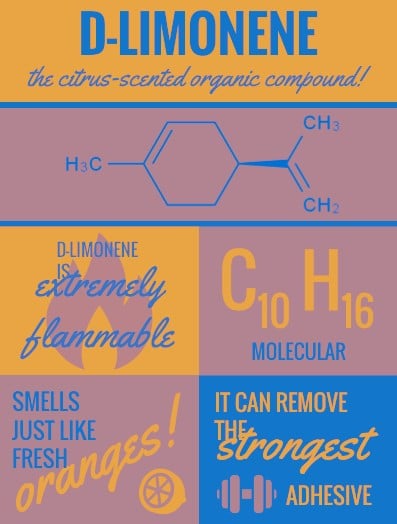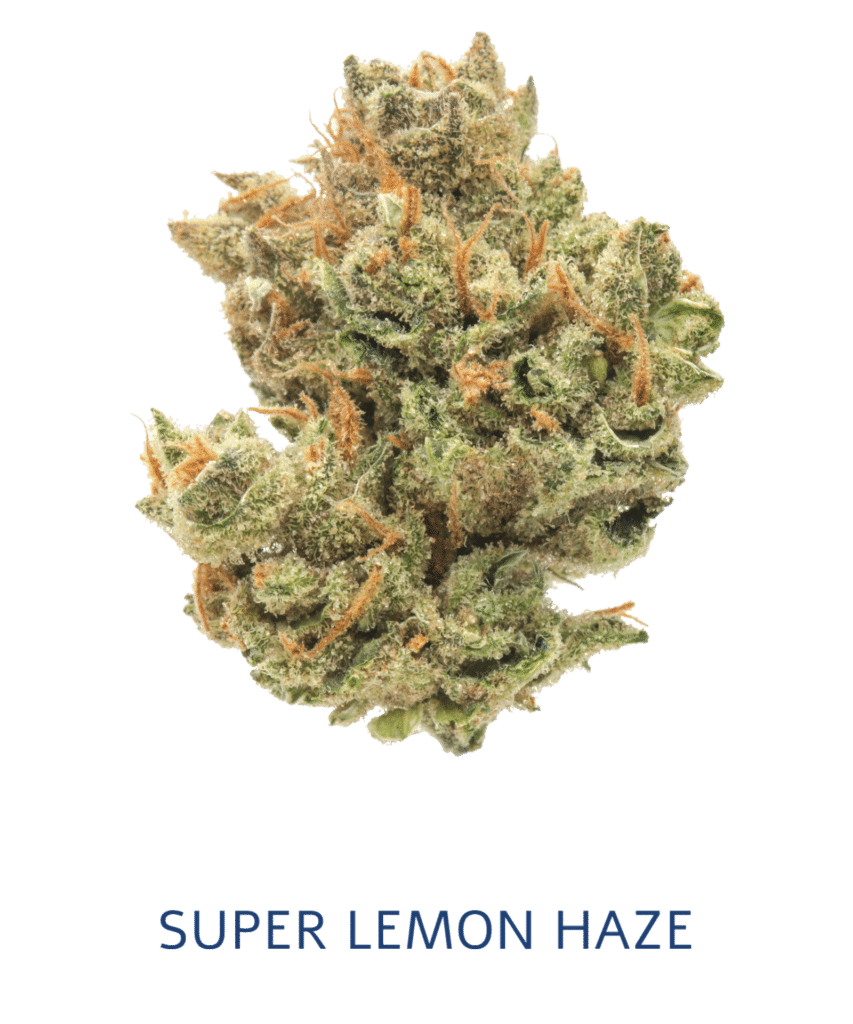Posted on February 22nd, 2021 to Terpene Isolates
Post by Mike Brown
What is Limonene?
Limonene is a terpene (technically, a cyclic monoterpene with the chemical formula C10H16) that is found within the oil secreted from most citrus fruits as well as pine needles and pine wood. Thus, it’s mostly known for piney, fruity and tangy aromas. Concentrated forms of the chemical compound known as limonene are commonly used in cleaning liquids and cosmetics. Just like other terpenes, limonene can be found within the oil-based substance that’s secreted from plants (including cannabis) alongside other chemical compounds like cannabinoids and flavonoids. While limonene contributes to a pleasant aroma, it’s also the topic of many clinical studies that aim to prove it’s therapeutic effects & benefits.
Limonene Index:
- Is limonene the same as d-limonene and l-limonene?
- What is d-limonene?
- What is l-limonene?
- Where is limonene found?
- Limonene strain profiles
- Limonene history
- What is limonene used for?
- Limonene Effects and Benefits
Is limonene the same as d-limonene and l-limonene?
No. Limonene, l-limonene, and d-limonene are not exactly the same thing. However, they are related. D-limonene is the most popular form of limonene found in nature. Technically, limonene is a cyclic monoterpene while l-limonene and d-limonene are isomers of this monoterpene. So, both l-limonene and d-limonene are technically derivatives or isomers of limonene.
 What is d-limonene?
What is d-limonene?
D-limonene or dextro-limonene is the most common form of limonene found naturally. You can find d-limonene in pine needles, gum turpentine, pine wood, and citrus fruit rinds. Pure d-limonene is used commonly as an ingredient in household cleaners.
What is l-limonene?
L-limonene or laevo-limonene is not quite as common. It can also be found in citrus fruit rinds like lemons, limes, etc. However, concentrations of l-limonene are typically much less abundant. Back to top.
Where is limonene found?
Limonene is found in a variety of plants throughout the world. This terpene can be found naturally in citrus fruit rinds as well as some vegetative plants, and, of course, in various cannabis strains. That’s right, the lemony smell in your Super Lemon Haze comes from the same chemical compound that makes lemons smell like – well, lemons! Many people believe that the limonene terpene is only found in cannabis strains that smell like lemon, but that is not always the case. If you’re after cannabis with high concentrations of this terpene, we highly recommend seeking out lab test results for the strain in question, as that’s the only way to know exactly how much limonene your particular plant may contain.
While limonene produces uplifting effects with a pleasant aroma, most cannabis flowers only contain small traces of the terpene. When limonene is present, it usually maxes out at around just 2% of the total chemical makeup. Compare that to the average THC levels in your typical recreational cannabis buds which can range anywhere from 10-30%, and you realize just how little of this terpene is naturally present. For this reason, you should consider infusing your products with one of our terpene solutions that is rich in limonene if you want your customers to get the most out of this terpene. Check out these terpene profiles we have for sale:
 Strain Profiles That Contain High Levels of Limonene
Strain Profiles That Contain High Levels of Limonene
Limonene is a compound found in a wide variety of cannabis strains. While some of these strains contain higher levels than others, many factors play a role in how much limonene a particular type of cannabis really has. These variables include genetics, growing practices, and the curing process used. Lab-based testing is the only way to understand the actual limonene percentage in cannabis. If you’re unable to see the lab testing for a particular strain, look for cannabis with a yellowish color. This typically indicates high concentrations of limonene. Back to top.
History of Limonene
For decades, limonene has been added to various fragrances and flavors for a wide range of goods – from cosmetics and cleaning products to food and pharmaceuticals. Over time, people have developed many other uses for limonene. The substance is also utilized in:
- Solvents
- Insect control
- Essential oils
- Hand cleaners
As researchers continue to learn more about limonene, we expect the substance will be added to more products and uses in the future.
 What is limonene used for?
What is limonene used for?
Ever noticed how cleaning solutions like Simple Green or Goo Gone contain “citrus extract”, pure d-limonene or pure l-limonene as a listed ingredient? This is because limonene actually works wonders as a remover of grease, sticky stains, tar, and more. It also has a pleasant & potent citrusy aroma akin to grapefruits and oranges.
Luckily, limonene is a terpene that has been thoroughly studied. Throughout this research, it has been observed that this substance has various effects on our immune systems.
Take a look at some of the most well-known limonene benefits:
Limonene Effects and Benefits
Limonene is believed to offer a wide variety of desirable effects and health benefits. However, while there are many potential therapeutic advantages to consider, it’s still unclear how the substance actually operates in the mind and body. We also don’t know what level of dose is required to reach its optimal effects. Although more research is needed on the topic, experts suggest limonene produces the following:
- Elevated mood
- Stress relief
- Antifungal properties
- Antibacterial properties
- May provide relief for heartburn and gastric reflux
- Aids in the absorption of other terpenes and chemicals
Thanks to substantial evidence, limonene is believed to also produce anti-tumor benefits. In a Phase I human clinical trial, it was found that limonene helped to reduce breast cancer tumor growth for nearly 12 months. Other studies prove that taking a limonene supplement once daily for 2-6 weeks can stunt the operation of a specific protein, one that helps the growth of breast cancer tumors. This finding suggests that consuming limonene on a daily basis can limit the development of these tumors, including their ability to spread. Back to top.
Anti-Anxiety
Essential oils that contain limonene are commonly used to treat anxiety. The substance is also utilized to ease depression symptoms and help with sleep. As limonene interacts with the serotonin system in our brains, it can help calm the mind and alleviate anxiety.
Antioxidant and Anti-inflammatory
Another leading benefit of limonene is that it’s used as an antioxidant and anti-inflammatory treatment. A 2017 study supports this claim after utilizing an animal model of ulcerative colitis. It was found that limonene helps reduce disease activity and can limit damage to organs.
Other Notable Therapeutic Benefits Limonene May Offer:
- Analgesic
- Diabetes treatment
- Anticancer
As studies continue to be done on limonene, additional benefits and effects could be observed in the coming years.
Advanced Terpene Solutions
If you own a dispensary, finding high-quality terpene profiles is a top priority. With a variety of flavors and aromas to choose from, Advanced Terpene Solutions has the products you can trust. Using innovative technology and eco-friendly practices, we develop the perfect handcrafted terpene recipes. Contact us today to add the incredible limonene terpene to your business! Back to top.



 What is d-limonene?
What is d-limonene? Strain Profiles That Contain High Levels of Limonene
Strain Profiles That Contain High Levels of Limonene What is limonene used for?
What is limonene used for?